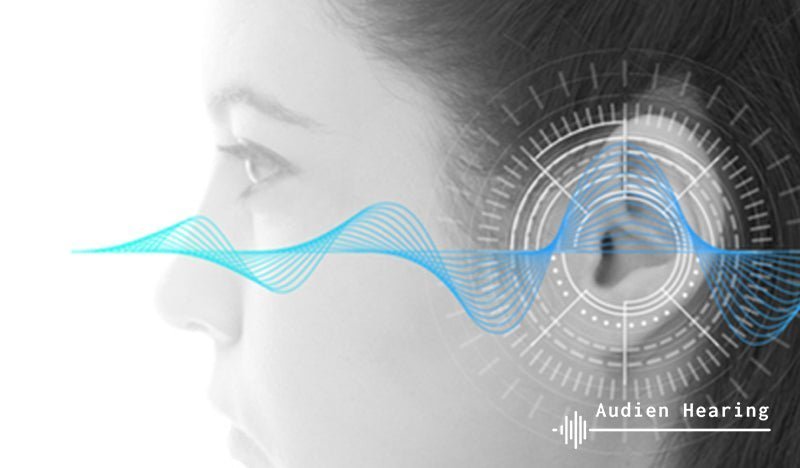If you suffer from tinnitus, you might feel distracted or frustrated at work. You might be wary of going out with friends or getting together with family, since you sometimes aren't able to make out certain things you want to hear—like the discussion going on around the dinner table.
About 15–20% of people worldwide experience tinnitus, so even though you may feel alone in your condition, many others understand what you’re going through. And there is good news—certain medical treatments, including the use of hearing aids, may help reduce tinnitus symptoms.
But what exactly is tinnitus? And what do hearing aids have to do with managing it?
What Is Tinnitus?
People with tinnitus often describe it as a ringing, buzzing, hissing, or whooshing sound in one or both ears that only they can hear. It may vary in volume and pitch and can be intermittent or constant.
Tinnitus tends to be more noticeable in quiet settings, such as when trying to fall asleep or spending time alone. In some cases, it may be a minor annoyance, but for others, it can be persistent and significantly affect quality of life.
Is Tinnitus a Disease?
Tinnitus is not a disease itself—it's a symptom of an underlying issue. In fact, up to 90% of people with tinnitus also have some degree of hearing loss. It often appears alongside noise-induced hearing loss, especially in those who work in loud environments (musicians, construction workers, veterans, etc.).
Although tinnitus doesn’t typically cause physical harm, it can interfere with sleep, focus, emotional well-being, and social interactions. If your tinnitus is sudden, worsening, or only in one ear, or if it’s pulsatile (in sync with your heartbeat), it’s especially important to consult a healthcare professional promptly. These symptoms could signal a more serious medical condition that needs evaluation.
Causes of Tinnitus

It’s important to understand that tinnitus and hearing loss are commonly associated, but one does not directly cause the other. Some known causes of tinnitus include:
-
Prolonged noise exposure (e.g., concerts, firearms, heavy equipment)
-
Ototoxic medications (certain antibiotics, chemotherapy agents, or high-dose NSAIDs)
-
Age-related hearing loss (presbycusis)
-
Medical conditions like Meniere’s disease, otosclerosis, or high blood pressure
-
Earwax buildup or ear infections
-
Head or neck injuries
-
Temporomandibular joint (TMJ) disorders
-
Rare but serious causes, such as vestibular schwannoma (a type of benign tumor), can also result in tinnitus—especially when it is one-sided or pulsatile. These situations warrant imaging tests and ENT evaluation.
Tinnitus may also be idiopathic, meaning no identifiable cause is found—but medical evaluation is still necessary to rule out treatable or serious conditions.
The Link Between Hearing Loss and Tinnitus
While tinnitus doesn’t directly cause hearing loss (and vice versa), the two are closely related. When hearing loss reduces the amount of sound reaching the brain, the brain may try to compensate by increasing the sensitivity of auditory pathways—resulting in the perception of phantom sounds like ringing or buzzing.
This is one reason why managing hearing loss can help reduce tinnitus perception.
How Do Hearing Aids Help with Tinnitus?
If you have both tinnitus and hearing loss, hearing aids can be an effective part of your treatment plan. By amplifying environmental sounds, hearing aids provide stimulation to the auditory system, which may reduce the contrast between silence and the phantom tinnitus noise—helping mask or minimize the perception of tinnitus.
Many hearing aids today include built-in sound therapy or masking features designed specifically to help manage tinnitus. Even basic amplification can often make a big difference for someone with hearing loss and tinnitus.
If tinnitus is only in one ear, you may still benefit from wearing hearing aids in both ears to restore balanced hearing and reduce listening effort.
As always, hearing aids should be selected and adjusted under the guidance of a licensed hearing care professional.
Best Hearing Aids for Tinnitus 
Wondering where to find hearing aids that may help with tinnitus? Audien Hearing offers affordable, over-the-counter hearing aids that provide high-quality amplification at a fraction of the cost of prescription devices.
While they don’t include tinnitus-specific masking features, the increased environmental sound provided by these hearing aids may help reduce your awareness of tinnitus in quiet environments. They’re rechargeable, FDA-registered, and come with a 45-day money-back guarantee.
Please note: Over-the-counter hearing aids are appropriate for adults with perceived mild to moderate hearing loss. They are not a substitute for a medical diagnosis or treatment. If you have concerns about your hearing or tinnitus, especially if it comes on suddenly, is in one ear only, or is pulsatile, you should see a doctor or audiologist before trying any hearing aid.
Order Affordable Hearing Aids Today
If you experience hearing loss alongside tinnitus, over-the-counter hearing aids may help improve your sound environment—and your quality of life.
Audien Hearing offers direct-to-consumer hearing aids with fast shipping, a one-year warranty, and risk-free returns. But remember: Hearing aids are just one piece of the puzzle. If your tinnitus is persistent, worsens, or presents with other symptoms like dizziness, hearing loss in one ear, or heartbeat-synced pulsing, don’t wait—schedule a medical evaluation with your primary care provider or an ENT specialist.
Your hearing health matters. Seeking help is the first step.
Audien offers the right OTC hearing aid to fit your unique circumstances; we offer:




